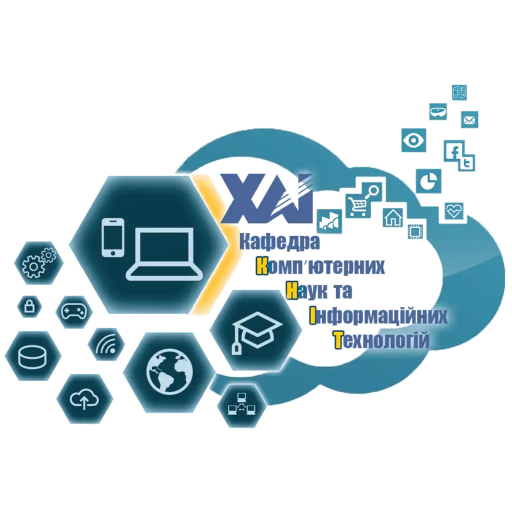Competencies (knowledge, skills, abilities)
graduates of the Department of Computer Science and Information Technology for employment in the IT industry
- Ability to search, process, and analyze information from various sources
- Ability to generate new ideas (creativity) to create information systems
- Ability to work in a project team to create information systems
- Ability to develop and manage projects for the creation of information systems
- Ability to evaluate and ensure the quality of work performed
- Ability to mathematical and logical thinking, formulation and study of mathematical models, in particular discrete mathematical models, justification of the choice of methods and approaches for solving theoretical and applied problems in the field of computer science, interpretation of the results
- Ability to identify patterns of non-deterministic phenomena by applying methods of computational intelligence, including statistical, neural network, and fuzzy data processing, machine learning and genetic programming methods, etc.
- Ability to construct logical conclusions, use formal languages and models of algorithmic computing, design, develop, and analyze algorithms, evaluate their effectiveness and complexity, solvability and intractability of algorithmic problems for adequate modeling of subject areas and creation of software and information systems
- Ability to use methods of describing discrete objects and calculating discrete systems, numerical methods for solving applied problems of analysis, forecasting the state of complex objects, and processes of management and design
- Ability to carry out a formalized description of the tasks of researching operations in organizational, technical, and socio-economic systems for various purposes, to determine their optimal solutions, to build models of optimal management choice taking into account changes in the parameters of the economic situation, to optimize management processes in systems of various purposes and hierarchy levels
- Ability to think systematically, and apply the methodology of system analysis to study complex problems of different natures, methods of formalization, and solutions to systemic problems with conflicting goals, uncertainties, and risks
- Ability to apply the theoretical and practical foundations of modeling methodology and technology, implement modeling algorithms to study the characteristics and behavior of complex objects and systems, conduct experiments on the modeling program with processing and analysis of results
- Ability to design and develop software using various programming paradigms: structural, object-oriented, functional, and logical, with appropriate models, methods, and algorithms of computation, data structures, and control mechanisms
- Ability to implement a multi-level computing model based on client-server architecture, including databases, data warehouses, and knowledge bases, to meet the computing needs of many users, transaction processing, including cloud services
- Ability to apply methodologies, technologies, and tools to manage the life cycle processes of information and software systems, information technology products, and services following customer requirements
- Ability to analyze data intelligently based on computational intelligence methods, including large and poorly structured data, their operational processing and visualization of analysis results in the process of solving applied problems in the field of computer science
- Ability to ensure the organization of computing processes in information systems for various purposes, taking into account the architecture, configuration, and performance indicators of operating systems and system software
- Ability to use knowledge of the principles and methods of construction and application of computer networks for data transmission and exchange and organization of network interaction in the process of solving applied problems
- Ability to apply methods and tools to ensure information security, develop and operate special software to protect information resources of critical information infrastructure
- Ability to analyze and functional modeling of business processes, construction and practical application of functional models of organizational, economic production, and technical systems, methods of risk assessment of IS design, synthesis of complex systems based on the use of its computer model
- Ability to implement high-performance computing based on cloud services and technologies, parallel and distributed computing in the development and operation of distributed systems of parallel information processing
